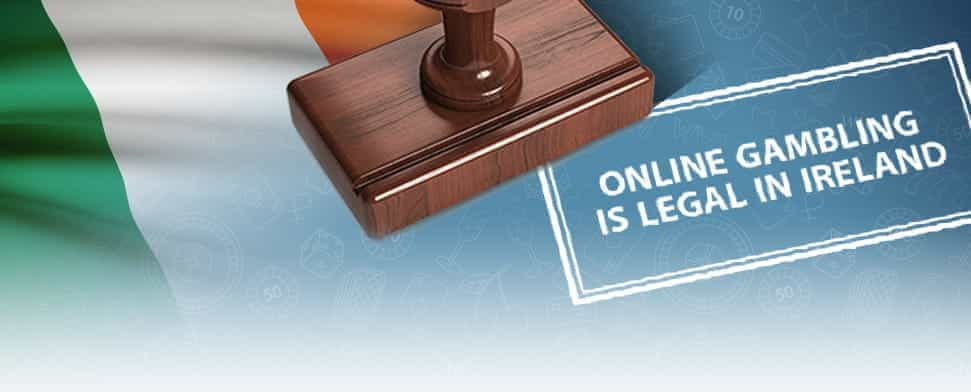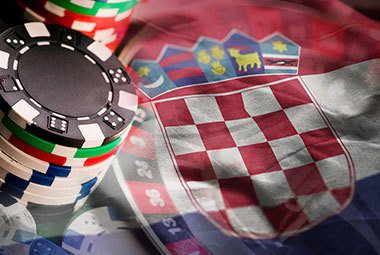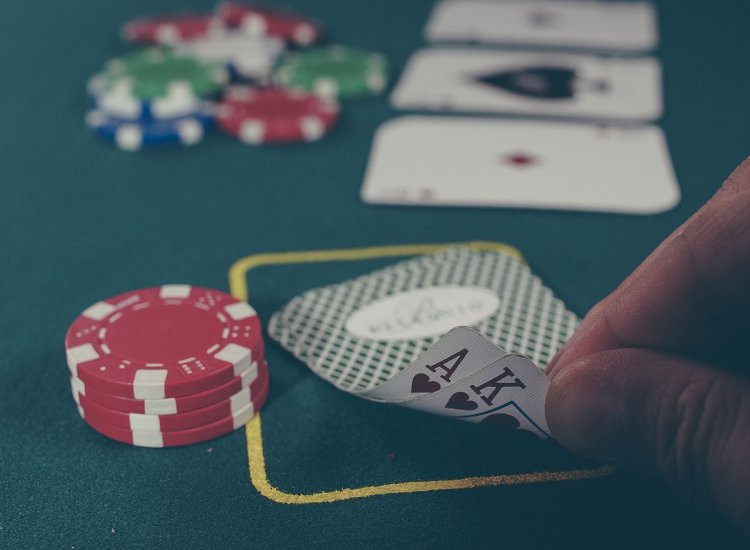Online Gambling Tax Ireland
Posted By admin On 04/04/22All countries and governments have their own online gambling tax policies and legislation so we need to look at this question from a global perspective. Firstly we’ll cover the situation in the UK and following that look at how things may differ in the rest of the world.
Do you have to pay tax on your gambling winnings?
There is a big difference in taxation in terms of trading and recreational gambling. Let’s discuss if your gambling rewards are taxable in Ireland. It’s a given that your winnings from lotteries and sports betting are not subject to Ireland’s capital gains tax. It’s good news for gambling aficionados and casino enthusiasts. Gaming operators who are licensed overseas but accept Irish customers should also be aware that their Irish revenues may be subject to value added tax (VAT) under Directive 2006/112/EC on the common system of value added tax and its implementing regulations (282/2011/EU). EGaming services are taxable in Ireland at a rate of 23% on a point of.
UK Gambling Taxes
Key Points
- All winnings either online or offline are tax free!
- Any betting tax abolished in 2001 by Gordon Brown.
- Tax used to be on bookies but they passed to punters.
- Bookmakers must now pay 15% POI tax but not punters.
- POI tax on any games of chance increased from 15% to 21% but again not for punters.
In the UK any and all winnings from gambling – either online or at betting shops – are entirely tax free and do not need to be declared as part of any tax return.
This has been the case since the then Chancellor of the Exchequer Gordon Brown’s budget of 2001, when he abolished Betting Duty which had stood at 6.75%. That duty was removed in an attempt to persuade bookmakers not to move their operations overseas and therefore take jobs and revenue away from the UK economy.
All of that is not to say that there is no tax involved when it comes to gambling in the UK, however, and there is a ‘point of consumption’ tax related to the activity. This does not affect punters themselves, though, and will be dealt with separately further down this page.
Will the situation ever change? Generally speaking there is little chance that this situation will be reversed, either, as the UK tax system is simply not built in such a way that taxing gambling winnings would be viable. This is the case as it is fairly standard within the system that if tax is levied on the income or profit made through an activity, then there must also be an allowance made against losses through the same activity.

With gambling being an activity where overall more losses are made by punters than winnings, therefore, such a change in the tax legislation would cost the UK government revenue. As a result, it is quite simply not something which would be considered. Your betting, casino, slot machine, poker and bingo winnings are yours to keep tax free.
What About Professional Gamblers?
It may seem logical that the tax situation would be different for professional gamblers than it is for occasional punters. When it comes to pure winnings from betting, however, that quite simply is not the case. As we have discussed above these winnings are not taxable and this remains true even for a ‘professional gambler’. That is because HMRC do not recognise professional gambling as a taxable trade.
In fact, within their most up to date ‘Business Income Manual’, HMRC clearly define their position on professional gambling:
‘The fact that a taxpayer has a system by which they place their bets, or that they are sufficiently successful to earn a living by gambling does not make their activities a trade.’ BIM22017
Gambling winnings, therefore, remain free of tax regardless of whether they make up an individual’s main source of income. Where the situation can get a little more complicated, however, is in the case of income related to gambling but not actually direct winnings from gambling. Appearance fees paid to poker players for playing at certain tournaments, for instance, represent payment for a service provided to the tournament organisers and as such may be taxable.

Away from the UK, too, tax laws and legislation do differ and it would benefit a professional gambler outside of the UK to research the specific rules and regulations within their own country.
UK Point of Consumption Tax
As we mentioned earlier, Betting Duty for gamblers was abolished in 2001 and was at that time replaced by a 15% tax on gross profits for bookmakers and gambling providers. That tax was initially charged on a ‘point of supply’ basis, meaning that if the bookmaker or company were not based in the UK, then they were not liable. This situation has more recently changed, however.
From the latter part of 2014, the tax on bookmakers’ profits was changed to a ‘point of consumption’ tax by a combination of the Gambling (Licensing and Advertising) Act 2014 and by the introduction of ‘Remote Gaming Duty’. This means that regardless of where they themselves are based, providers must pay a 15% duty on any bets placed by UK customers.
In the 2018 budget chancellor George Osborne announced that the point of consumption tax would rise from 15% up to 21% for all games of chance but sports betting would remain at 15%, for now.
Gambling Taxes In The Rest Of The World
| Country | Taxes |
|---|---|
| Austria | No |
| Australia | No |
| Australia | No |
| Belgium | No |
| Bulgaria | No |
| Canada | No |
| Czech Republic | No |
| Denmark | No |
| Finland | No |
| France | 2% on poker cash pots, 7.5% on sports (+1.8% levy) and 7.5% on horse racing (+8% levy) |
| Germany | No |
| Greece | No except lottery at 10% |
| Hungary | No |
| Ireland | Bookies pay 1% on all bets – not winnings. |
| Italy | No |
| Kenya | No – bookies must pay 7.5% on their winnings. |
| Latvia | 25% |
| Luxembourg | No |
| Macau | 40% |
| Malta | No |
| Nigeria | 20% |
| Netherlands | No expect lottery at 29% above €454 |
| Portugal | No expect lottery at up to 35% |
| Romania | 1% up to 66,750 RON, additional 16% of surpassing margin up to 445,000, additional 25% of surpassing margin over 445,000 RON |
| Slovenia | No expect lottery at 50% if more than €4,000 |
| Spain | No but must declare winnings as income for taxation |
| Sweden | No |
| South Africa | No except 6% on horse racing. |
| UK | No |
| USA | 25% |
As the above table shows, where various types of gambling are legal there are a variety of different attitudes towards taxation on winnings from those forms of betting. If your country is not listed then it’s likely gambling is not strictly legal and there is therefore no taxation laws.

The Gambling Control Bill was approved by Government in July 2013. This Bill will, upon enactment, repeal all extant gaming and betting legislation, with the exception of that governing the National Lottery.
The General Scheme of the Bill is with the Office of the Parliamentary Counsel to the Government (OPC) awaiting drafting.
Betting Act 1931
The Betting (Amendment) Act 2015 was commenced on 15th April 2015. This legislation amends the Betting Act 1931 and provides for the licensing of remote (on-line) bookmakers and betting intermediaries for the first time.
Applications for certificates of personal fitness from remote operators, and terrestrial bookmakers not ordinarily resident in the State, are to be made to the Minister for Justice, following the placement of an advertisement in two daily, national newspapers. The advertisement and the application form are to be in a specified format. You can access these at the link below:
Terrestrial out of State Operators
Remote Operators
Applications for certificates of personal fitness from terrestrial bookmakers ordinarily resident in the State are to be made to a Superintendent of An Garda Síochána. The newspaper advertisement and application form for such operators can be accessed at the following link
Terrestrial Irish Operators
The application form in all instances details the information that is to be submitted in support of an application. It should be noted that an application will not be considered until such time as all such information has been received.
'relevant officer' of a corporate body is defined in section 1 of the 1931 Act as amended by section 2 of the 2015 Act. The first category of person who must apply for a certificate of personal fitness is he or she who exercises control (within the meaning of section 11 or 432 of the Taxes Consolidation Act 1997) in relation to the corporate body. In addition to such persons, corporate bodies may choose that an individual in either the second or third category of person as defined in section 1 applies for a certificate of personal fitness. The legislation does not require all three categories of person to be deemed a 'relevant officer'.
Gaming and Lotteries Act 1956

The Gaming and Lotteries Acts 1956–2003 allow some limited forms of gambling. This is in order to provide a controlled outlet for people who wish to gamble. It also provides a method of fund-raising for charitable, philanthropic and other socially desirable purposes.
The forms of gambling permitted under the 1956 Act are:
- Lotteries (excluding lotteries covered by the National Lottery Act 2013, which is under the auspices of the Department of Public Expenditure and Reform)
- A very limited form of gaming ('gaming' means playing a game (either of skill or chance) for money.)
For more information on gaming and lotteries, see the Review of the Gaming and Lotteries Acts 1956-86 A copy of the 1956 Act is included in the review document.
The Gaming and Lotteries (Amendment) Act 2019, will come into effect on 1 December 2020. Information Notes for Gaming and Lotteries are available here: Information Notes for Gaming and Lotteries
Information notes for relevant licences and permits can be found here: Information Notes for Gaming and Lotteries

Previous examinations of Ireland’s gambling laws
Casino Regulation Committee
The Casino Regulation Committee was set up in August 2006 and its report was published in July 2008 under the title Regulating Gaming In Ireland (PDF - 2.11MB)
Review of Gambling
Online Gambling Tax Ireland 2019
A paper entitled Options for Regulating Gambling published in December, 2010, represented the culmination of a public consultation undertaken by the Department as part of an overall review of gambling in Ireland.
Charitable Lotteries Fund
Online Gambling Tax Ireland 2020
The scheme has now ceased to operate.